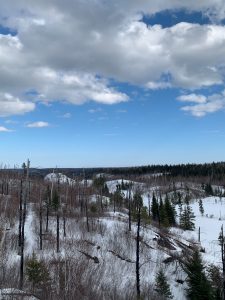What Faithful Communities Can Learn from Lichen
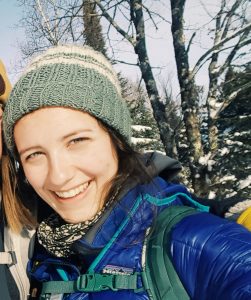
Katelyn Lavrenz, 2020 Program Coord.
Hi everyone! My name is Katelyn and I am the program coordinator for the summer. I have been connected to Wilderness for many years starting as a camper, swamper, and staff member, and now I find myself in a new terrain of a virtual staff member. A few of us have taken on the task of being virtual naturalists this summer (though it seems like such an ironic title to be trying to teach folks about the outdoors through a screen because it can be hard to build relationship and connection to a wilderness space through a computer). Recently, I have been learning and reading a bit about lichens. They are fascinating and if you all would humor my science teacher side; I would love to try to tell a bit of their story.
Lichens are OLD – approximately 400 million years old. Scientists initially believed that they were just an organism living like any other plant just doing their little photosynthesis thing (turning water and sunlight into sugars, using those sugars as energy, rinse and repeat). In 1867 it was discovered that lichens are actually made up of two separate organisms: algae and fungus. The fungus and algae live harmoniously to create lichen which behaves like a single independent plant. This symbiotic relationship is formed between the two organisms and each of them benefit from the other. Both organisms can live independently when they are on their own, but they can prosper when they are living together in community.
What does it look like when we work as a community just like the fungus and the algae? What does it look like when the dominant culture works for and with those who are oppressed to work to end systemic racism? What does it look like when the Christian community joins together to lift people up of all sexual orientations, races, socioeconomic statuses, ages, and abilities? What does it look like when the Wilderness community joins with one another from all different eras to share stories and talk about how WCB has impacted them? Let’s consult back with the lichens to try and help answer these questions.

British Solider Lichen
Lichens are incredibly diverse. Scientists have discovered around 15,000 different species of lichen around the world. There are different species of algae that pair with the fungus and even sometimes bacteria that creatively wedges itself into this community. These pairings create a variety of beautiful lichens ranging from old man’s beard to reindeer lichen, to hammered shield lichen, and even British soldier lichen. This diversity makes them so special and also so understudied. There is so much to still learn about lichen and, until recently, folx had a next-to-impossible time trying to identify them due to their structurally small size. So if you are looking to have an organism named after you, lichen is a great place to start your studying! As I consider how lichens are 400 million years old, it makes me think about how lichens rich biological diversity could have impacted the sustainability of their existence. This diversity has grown their community to make them become some of the oldest and most unique systems of mutual reciprocity in nature.
“Cultures of gratitude must also be cultures of reciprocity. Each person, human or no, is bound to every other in a reciprocal relationship. Just as all beings have a duty to me, I have a duty to them. If an animal gives its life to feed me, I am in turn bound to support its life. If I receive a stream’s gift of pure water then I am responsible for returning a gift in kind. An integral part of a human’s education is to know those duties and how to perform them.”
Robin Wall Kimmerer, Braiding Sweetgrass

Reindeer Lichen
This act of reciprocity, as Robin Wall Kimmerer shares in the above reading from Braiding Sweetgrass, is a seemingly simple idea. Within lichen, the fungus is acting to protect the algae. These fungal threads (called hyphae) wrap around the algae just like a swaddling blanket. The algae produce sugars through photosynthesis not only to provide for themselves but also for the fungus that is keeping them safe. This allows them to have a complete symbiotic relationship with one another; the fungus provides protection for the algae like a home and the algae providing for the fungus like a cook. We can learn about what it means to not only give but also receive from analyzing this symbiotic relationship. This relationship allows for lichen to be able to grow in extreme environments that you would think would be just an absolute desolate wasteland, but it is covered in life. Lichens cover rocks that are tackled by waves, trees that are tossed in the wind, sometimes even covering the oh-so-inhospitable building or sidewalk. They are everywhere, and on top of all that they continue to thrive and survive through harsh freezing winters. Now that is down-right resilience.
Currently we live in a time where we all have to be resilient, and some more-so than others. Many of us are trying to find different ways practice resilience in this time whether it be sewing masks, attending protests, signing petitions, or donating to a cause. Resilience may also look as ordinary as going to work, finding a job, or attending a doctor’s appointment. We can see how resilient the lichens are and learn that it is a small ecological community of different types of algae and fungi supporting one another. Our communities can also provide resilience. The Wilderness Canoe Base community, for example, is extremely resilient. A forest fire couldn’t cancel our summer programming in 2007 and even through a global pandemic we are able to provide virtual programming and offer Wilderness to families through Family Getaways. We would not have been able to do this without the help and vast support of our broad community.
“Now no shrub had yet appeared on the earth and no plant had yet sprung up, for the Lord God had not sent rain on the earth and there was no one to work the ground, but streams came up from the earth and watered the whole surface of the ground. Then the Lord God formed a man from the dust of the ground and breathed into his nostrils the breath of life, and the man became a living being. Now the Lord God had planted a garden in the east, in Eden; and there he put the man he had formed.The Lord God made all kinds of trees grow out of the ground—trees that were pleasing to the eye and good for food. In the middle of the garden were the tree of life and the tree of the knowledge of good and evil.”
– Genesis 2:5-9
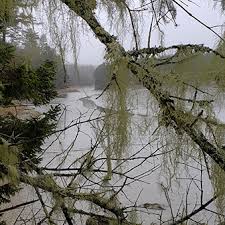
Old Man’s Beard
Lastly, lichens are a great indicator of good air quality (this is called a “bio-indicator”). There are some species of lichen that are sensitive to common air pollutants like nitrogen, which is why you may find less lichen in cities than in places like the Boundary Waters. They also have the ability to absorb air pollutants and clean up the air. This makes me think about breath and how our religion started with breath – God breathing life into this world like in our first reading today. The Greek word for Lord is “Yahweh” which literally translates to “inhale” (Yah) and “exhale” (weh). Lichens are indicators of God’s breath of creation. The air that we breathe is the air that the lichens breathe. God’s presence is clear in wilderness spaces through the awe and wonder that surrounds places like the Boundary Waters. But that is also one of the troubles with wilderness; sometimes we forget about God’s presence in the city.
But you know what still exists in the city? Lichen! Although it’s not found in the same quantities, you can still find it cleaning up pollutants and making the air clean for all of God’s creation to breathe in.
So what have these small, almost unnoticed, pairings of algae and fungus taught us? Lichens are a small community that has been living harmoniously for centuries thanks to their incredible diversity. They are resilient and can withstand harsh and troublesome conditions for years. And that they are sharing the same air and space that we are. How can we better shape the Christian community to look like this? People have been displaying the resiliency of lichens for years. Just look at the Black Lives Matter movement, or the LGBTQIA+ community, the people that stood for standing rock and protested the Dakota Access Pipeline, and the folx that fought for the Equal Rights Amendment. How could Christians be better at supporting these resilient strong communities? What are we doing well at? What are some things we should consider about our historical past and our cultural lenses? What could the Wilderness Canoe Base community improve to help support resilience and sustainability for these communities? On the flip side, what have both of these communities done well? This is a huge question that we need to continue to talk about in these spaces and then go a step further and act upon them. A starting point is thinking about how we can support these communities that have suffered years of discrimination and then create an action plan that we will abide by. Just like how the fungi support the algae in lichen.
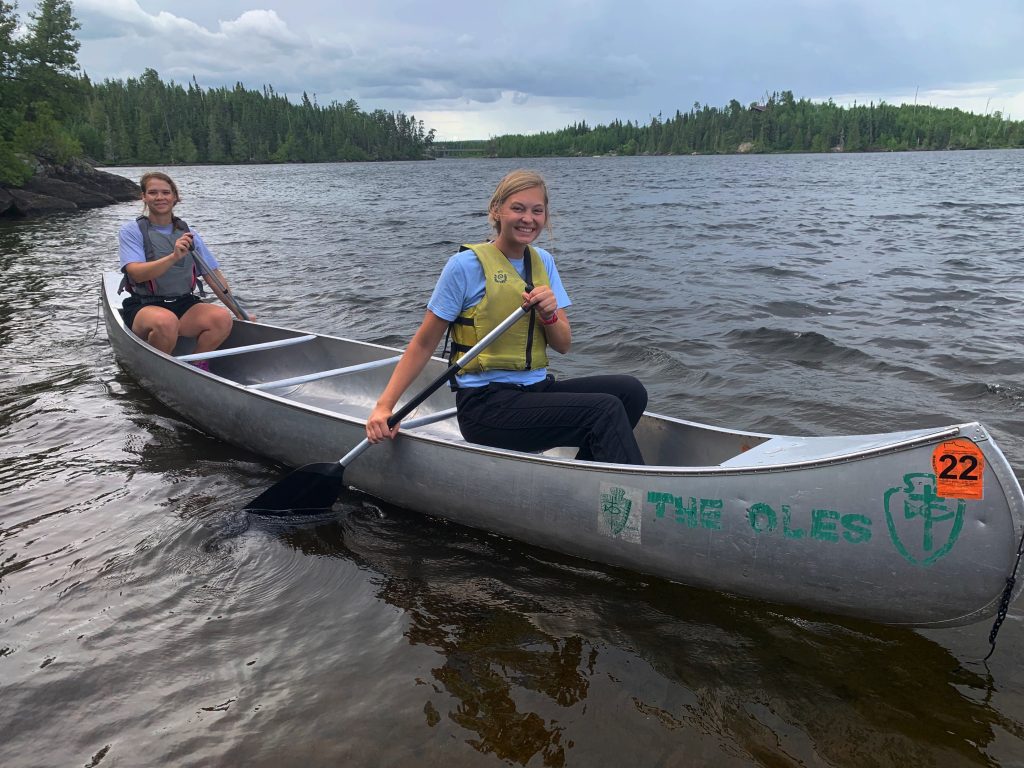
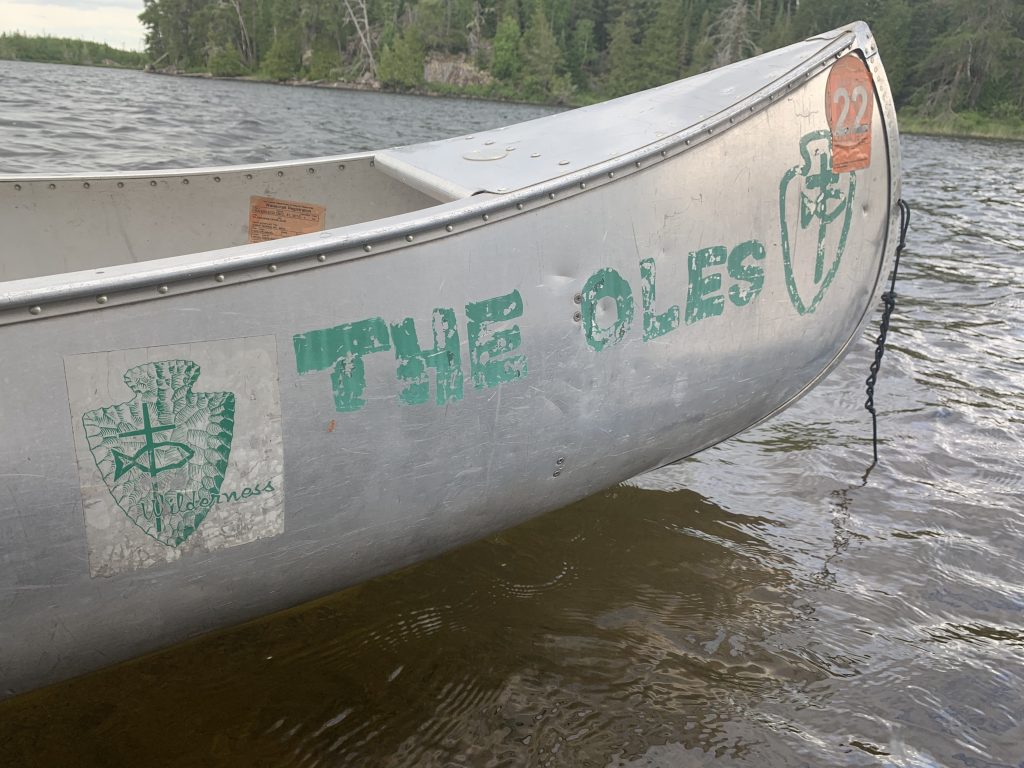
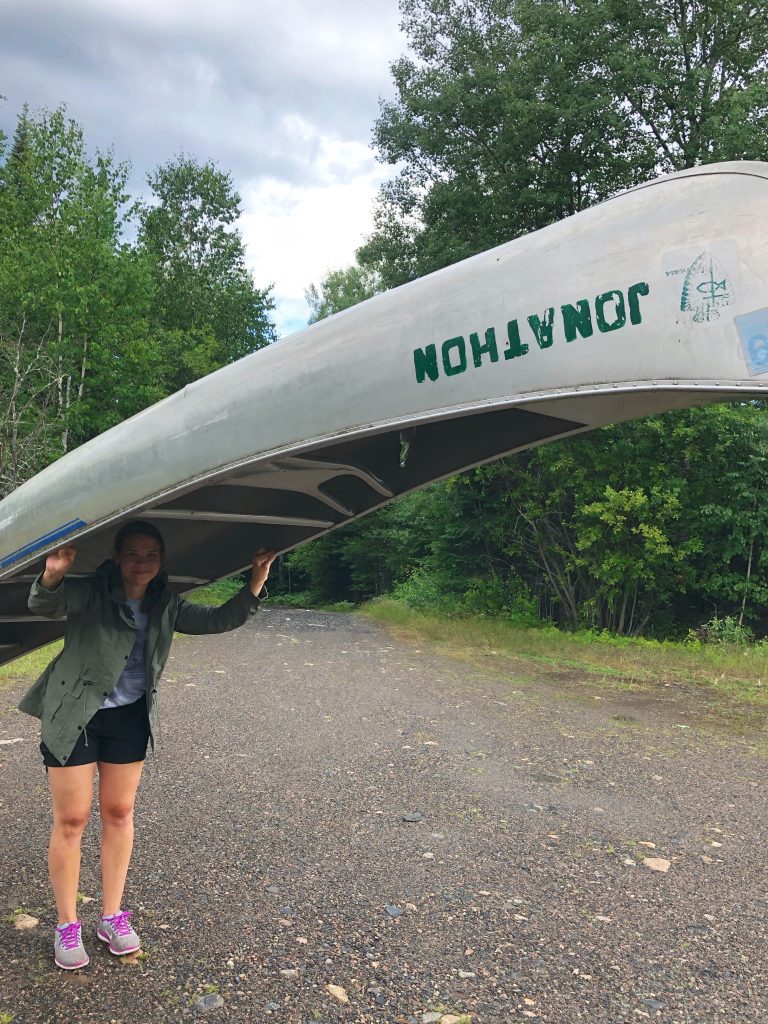
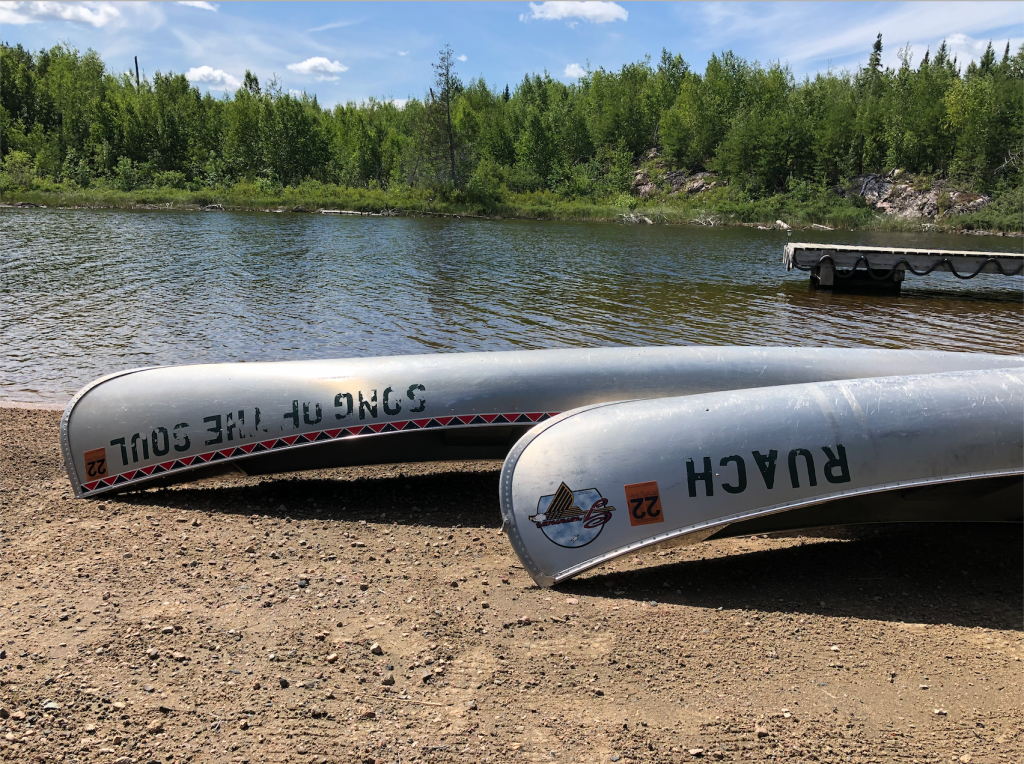
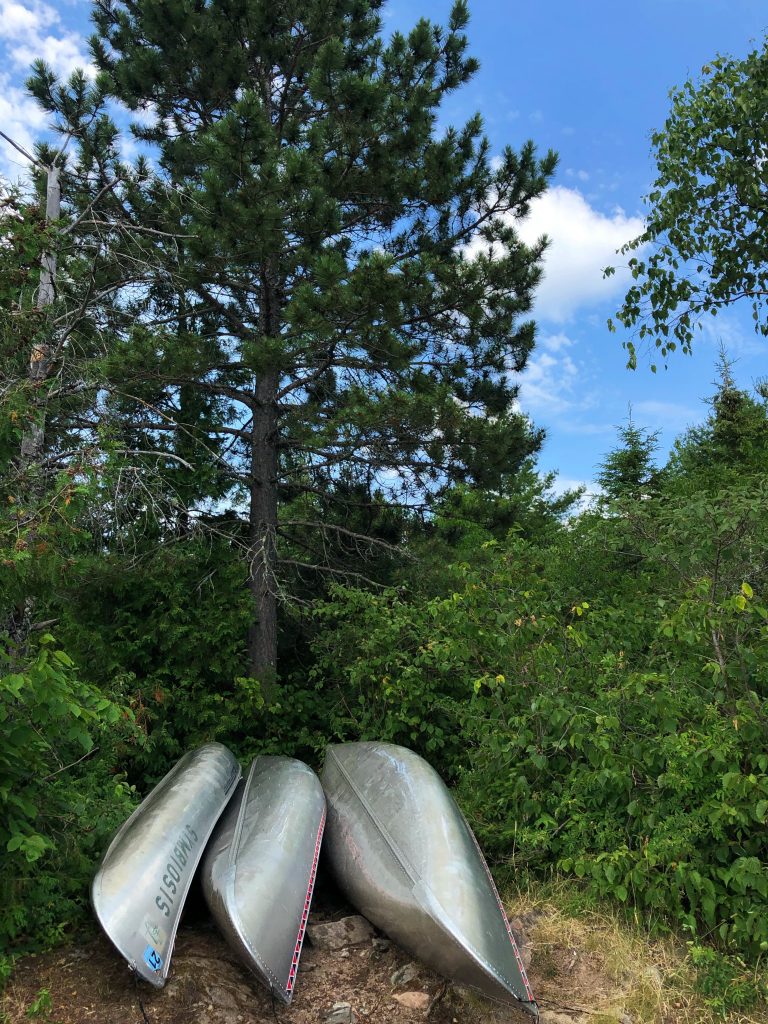
 It’s been several years since my summers at Wilderness, first as a camper, then as a swamper, then as a maintenance and construction base staffer and finally as a canoe guide.
It’s been several years since my summers at Wilderness, first as a camper, then as a swamper, then as a maintenance and construction base staffer and finally as a canoe guide.
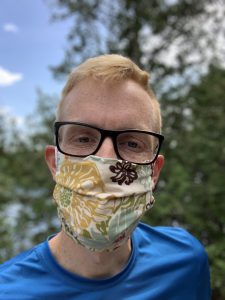 I lived in South Africa a number of years ago, and I often reflect on the formative experiences that I had there. Recently, I’ve been thinking a lot about one specific sermon from that year where the Pastor read from Paul’s first letter to the Corinthians and preached about the “Body of Christ.” Reflecting upon health crises that impact various communities around the world – and specifically the community where we were gathered that Sunday morning, the Pastor proclaimed that if we are all part of the body of Christ and if there is even one member of the body who has HIV/AIDS, then the entire body of Christ has HIV/AIDS. The Pastor’s call was for us to care, radically and communally, for those with HIV/AIDS – in the same way that a body works to heal from illness or injury. This sermon reframed Paul’s “Body of Christ” imagery for me, helping me not only to reflect on my interconnected position in the world, but also to think differently about how I (as an eye, or ear, or any other part of the body), must care, radically and communally, for other members of the body.
I lived in South Africa a number of years ago, and I often reflect on the formative experiences that I had there. Recently, I’ve been thinking a lot about one specific sermon from that year where the Pastor read from Paul’s first letter to the Corinthians and preached about the “Body of Christ.” Reflecting upon health crises that impact various communities around the world – and specifically the community where we were gathered that Sunday morning, the Pastor proclaimed that if we are all part of the body of Christ and if there is even one member of the body who has HIV/AIDS, then the entire body of Christ has HIV/AIDS. The Pastor’s call was for us to care, radically and communally, for those with HIV/AIDS – in the same way that a body works to heal from illness or injury. This sermon reframed Paul’s “Body of Christ” imagery for me, helping me not only to reflect on my interconnected position in the world, but also to think differently about how I (as an eye, or ear, or any other part of the body), must care, radically and communally, for other members of the body.